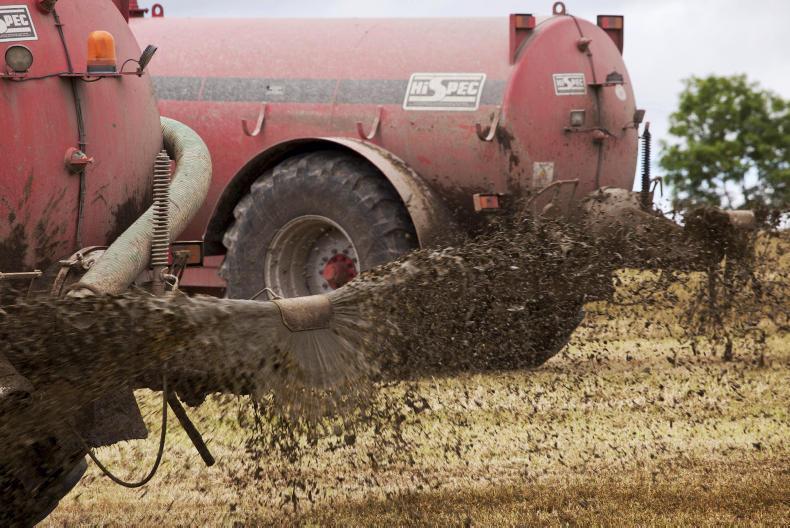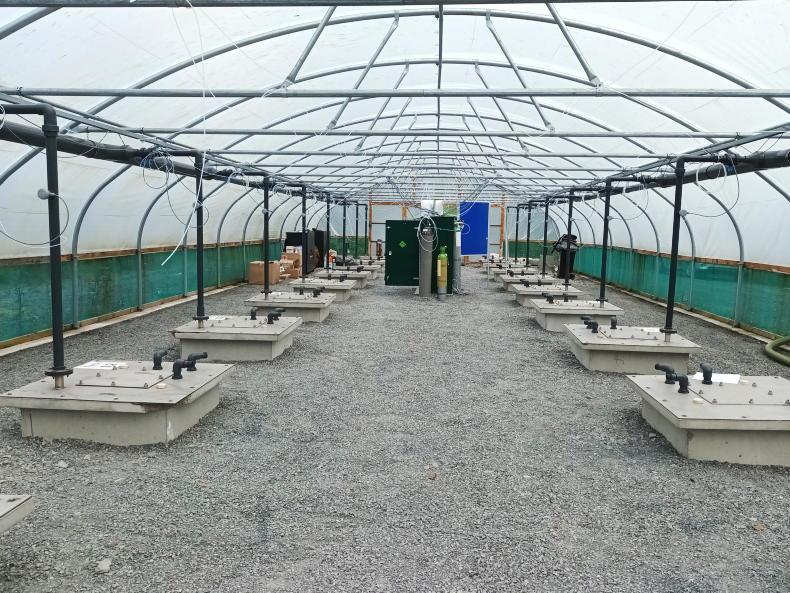In May, Minister Naughten’s department conducted a public consultation asking whether splash-plate slurry spreading should be phased out as part of efforts to keep ammonia pollution under EU limits.
“It was a consultation paper. The question was put out there so that we can get feedback,” Minister Naughten told the Irish Farmers Journal at this week’s Energy in Agriculture conference in Gurteen College. “No decision has been made in relation to any of this. I’m not in the business of putting any additional financial burdens on farmers.”
Public health
Splash-plate slurry spreading releases more ammonia into the air than low-emission techniques such as trailing shoes. Increasing concentrations of the gas pose a risk to public health.
While Minister Naughten said that there are air pollution problems within the agricultural sector, he added that submissions to the consultation and farmers he met around the country offered cost-effective solutions.
In its submission to the consultation, Teagasc said that the only way for Ireland to meet its obligations while growing agricultural production was to convert 50% of slurry spreading to trailing shoes. This would cost €36m, assuming the effort is focused on contractors, who are heavier users.
Living up to our responsibility in relation to air quality and other standards, but also meeting the needs of the farming community
“What we’re trying to do is to put a sustainable, long-term environmental policy in place that benefits the environment, meets our targets that have been set at European level, living up to our responsibility in relation to air quality and other standards, but also meeting the needs of the farming community,” Minister Naughten said.
Read more
Ireland seeks air pollution exemption for slurry gases
Contractors rise to €20m splash-plate challenge
In May, Minister Naughten’s department conducted a public consultation asking whether splash-plate slurry spreading should be phased out as part of efforts to keep ammonia pollution under EU limits.
“It was a consultation paper. The question was put out there so that we can get feedback,” Minister Naughten told the Irish Farmers Journal at this week’s Energy in Agriculture conference in Gurteen College. “No decision has been made in relation to any of this. I’m not in the business of putting any additional financial burdens on farmers.”
Public health
Splash-plate slurry spreading releases more ammonia into the air than low-emission techniques such as trailing shoes. Increasing concentrations of the gas pose a risk to public health.
While Minister Naughten said that there are air pollution problems within the agricultural sector, he added that submissions to the consultation and farmers he met around the country offered cost-effective solutions.
In its submission to the consultation, Teagasc said that the only way for Ireland to meet its obligations while growing agricultural production was to convert 50% of slurry spreading to trailing shoes. This would cost €36m, assuming the effort is focused on contractors, who are heavier users.
Living up to our responsibility in relation to air quality and other standards, but also meeting the needs of the farming community
“What we’re trying to do is to put a sustainable, long-term environmental policy in place that benefits the environment, meets our targets that have been set at European level, living up to our responsibility in relation to air quality and other standards, but also meeting the needs of the farming community,” Minister Naughten said.
Read more
Ireland seeks air pollution exemption for slurry gases
Contractors rise to €20m splash-plate challenge









SHARING OPTIONS